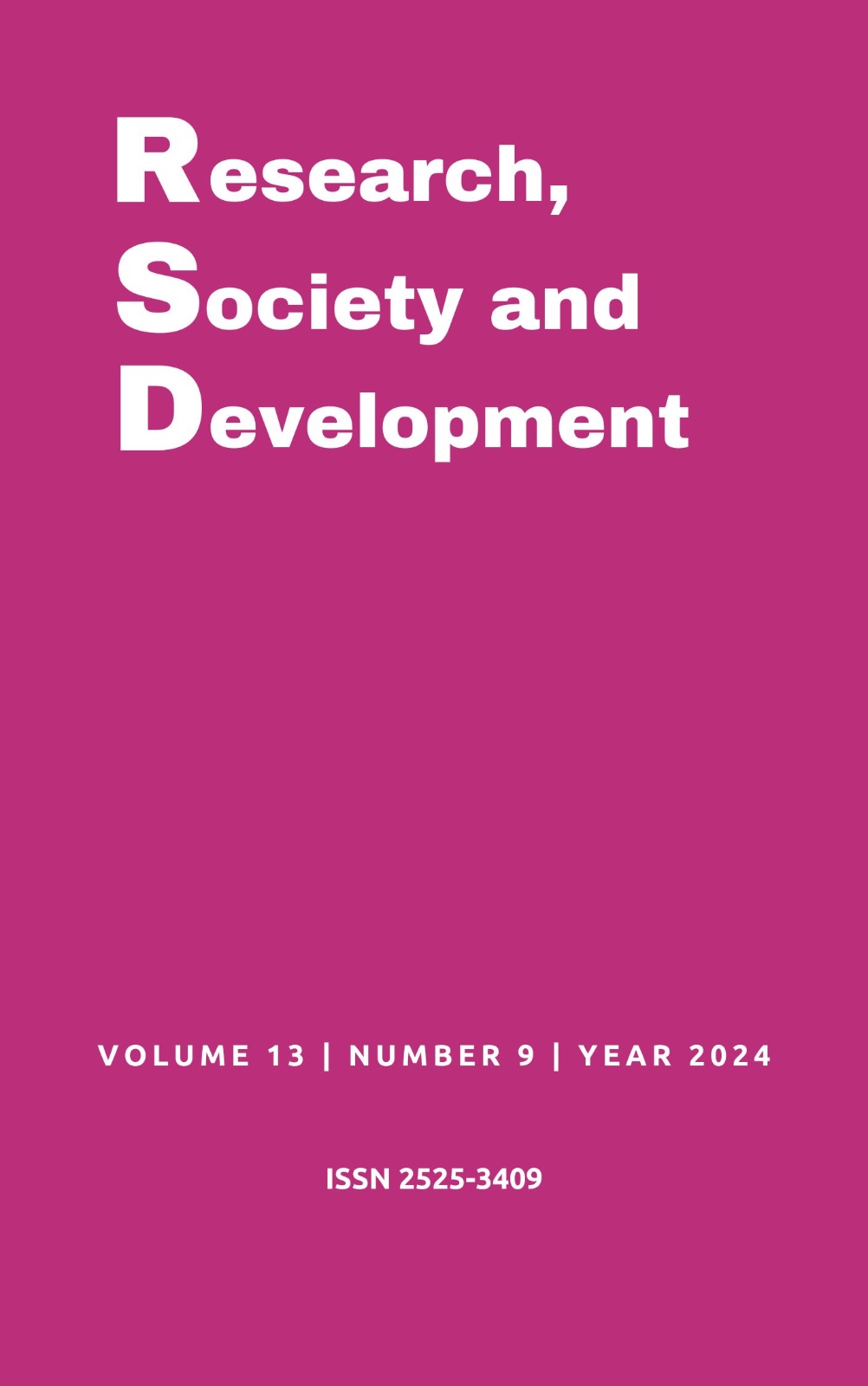Incomplete and delayed recovery from sudden loss of smell in COVID-19
DOI:
https://doi.org/10.33448/rsd-v13i9.46710Keywords:
COVID–19, Smell, Recovery.Abstract
The research addresses pathophysiological mechanisms, psychosocial impacts, diagnostic methods, therapeutic interventions and factors that influence the recovery of olfactory function. Anosmia in COVID-19 is caused by infection of the support cells in the olfactory epithelium by SARS-CoV-2, resulting in local inflammation and dysfunction of olfactory neurons. The prevalence of anosmia is high, with varying recovery among patients. Diagnostic methods include odor identification tests and self-reports. Therapeutic interventions such as olfactory training and the use of corticosteroids have shown promising results, although effectiveness varies. The psychosocial impact of anosmia is significant, affecting patients' quality of life, mental health and social interactions. The article emphasizes the need for early diagnosis and personalized interventions to improve recovery outcomes. Longitudinal studies and biomarker research are needed to improve therapeutic strategies and better understand recovery mechanisms. It is concluded that anosmia, although often temporary, can be debilitating, requiring ongoing medical and psychological attention.
References
Aydin, K., & Kocaeli, H. (2015). Traumatic anosmia. Turkish Neurosurgery, 25(2), 257-264. https://doi.org/10.5137/1019-5149.JTN.11083-14.1
Brann, D. H., Tsukahara, T., Weinreb, C., Lipovsek, M., Van Den Berge, K., Gong, B., ... & Datta, S. R. (2020). Non-neuronal expression of SARS-CoV-2 entry genes in the olfactory system suggests mechanisms underlying COVID-19-associated anosmia. Science Advances, 6(31), eabc5801. https://doi.org/10.1126/sciadv.abc5801
Butowt, R., & von Bartheld, C. S. (2020). Anosmia in COVID-19: Underlying mechanisms and assessment of an olfactory route to brain infection. The Neuroscientist, 26(5-6), 582-587. https://doi.org/10.1177/1073858420956905
Damm, M., Bork, M., Spitznas, M., & Hummel, T. (2017). Olfactory training is helpful in postinfectious olfactory loss: A randomized, controlled, multicenter study. Laryngoscope, 124(4), 826-831. https://doi.org/10.1002/lary.24217
Doty, R. L. (2017). Olfactory dysfunction in neurodegenerative diseases: is there a common pathological substrate? The Lancet Neurology, 16(6), 478-488. https://doi.org/10.1016/S1474-4422(17)30123-0
Graziadei, P. P., Levine, R. R., & Graziadei, G. A. (1980). Regeneration of olfactory axons and synapse formation in the forebrain after bulbectomy in neonatal mice. Proceedings of the National Academy of Sciences, 77(6), 3560-3564. https://doi.org/10.1073/pnas.77.6.3560
Hellings, P. W., Klimek, L., Cingi, C., Agache, I., Akdis, C., Bachert, C., ... & Papadopoulos, N. G. (2017). Non-allergic rhinitis: Position paper of the European Academy of Allergy and Clinical Immunology. Allergy, 72(11), 1657-1665. https://doi.org/10.1111/all.13200
Henkin, R. I., Patten, B. M., Re, P. K., & Bronzert, D. A. (2009). A pilot study of the effect of alpha lipoic acid on chemosensory function. Journal of Biological Regulators & Homeostatic Agents, 23(2), 173-183.
Hummel, T., Rissom, K., Reden, J., Hahner, A., Weidenbecher, M., & Hüttenbrink, K. B. (2009). Effects of olfactory training in patients with olfactory loss. Laryngoscope, 119(3), 496-499. https://doi.org/10.1002/lary.20101
Le Bon, S. D., Konopnicki, D., Pisarski, N., Prunier, L., Lechien, J. R., & Rodriguez, A. (2020). Efficacy and safety of olfactory training in patients with COVID-19 related persistent anosmia: A randomized controlled trial. European Archives of Oto-Rhino-Laryngology, 277(9), 2937-2940. https://doi.org/10.1007/s00405-020-06230-2
Meinhardt, J., Radke, J., Dittmayer, C., Mothes, R., Franz, J., Laue, M., ... & Stenzel, W. (2021). Olfactory transmucosal SARS-CoV-2 invasion as a port of central nervous system entry in individuals with COVID-19. Nature Neuroscience, 24(2), 168-175. https://doi.org/10.1038/s41593-020-00758-5
Sorokowska, A., Drechsler, E., Karwowski, M., & Hummel, T. (2017). Effects of olfactory training: A meta-analysis. Rhinology, 55(1), 17-26. https://doi.org/10.4193/Rhin16.195
Downloads
Published
Issue
Section
License
Copyright (c) 2024 Marianne Ritter

This work is licensed under a Creative Commons Attribution 4.0 International License.
Authors who publish with this journal agree to the following terms:
1) Authors retain copyright and grant the journal right of first publication with the work simultaneously licensed under a Creative Commons Attribution License that allows others to share the work with an acknowledgement of the work's authorship and initial publication in this journal.
2) Authors are able to enter into separate, additional contractual arrangements for the non-exclusive distribution of the journal's published version of the work (e.g., post it to an institutional repository or publish it in a book), with an acknowledgement of its initial publication in this journal.
3) Authors are permitted and encouraged to post their work online (e.g., in institutional repositories or on their website) prior to and during the submission process, as it can lead to productive exchanges, as well as earlier and greater citation of published work.


